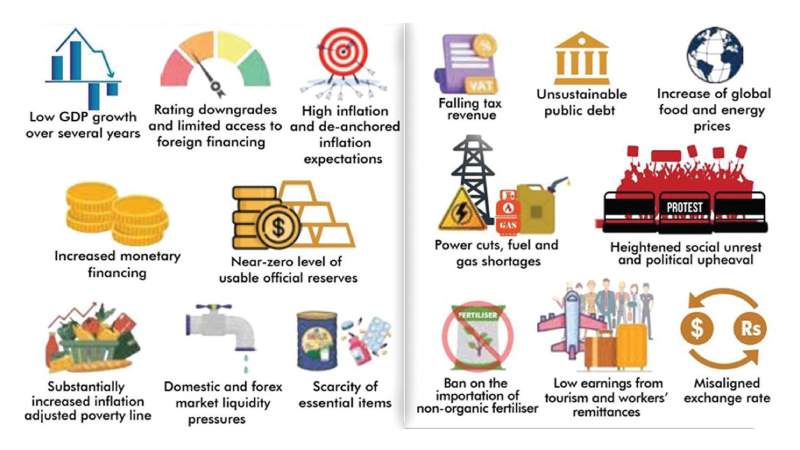Sri Lanka, after going through a severe socio-economic crisis, has achieved stability to a great extent and economic activity is picking up, said Assistant Governor Central Bank of Sri Lanka (CB), Dr. Chandranath Amarasekara.
He was making a presentation on ‘Sri Lanka’s Economic Security in 2024 – Evaluating the Outlook and Risks’ in Colombo on Wednesday.
He said that the main reason for this was due to the guidance given by the IMF and if the country had not done so, the outcome would have been unthinkable.
“What would have happened if stabilisation measures were not taken?” he asked.
Citing an example, he said that of the 196 countries listed in the IMF’s World Economic Outlook (WEO), from 1980 to 2023, 60 countries had experienced inflation above 50% for at least one year. “These 60 countries had 72 episodes of inflation remaining above 50%.”
In some countries, inflation remained above 10% for more than 35 years (and counting) and only 12 countries (including Sri Lanka) were able to bring down the inflation to a single digit in less than one year.
Highest inflation captured in the WEO was 130,060% in Venezuela in 2018. The peak month of hyperinflation occurred in mid-November 2008 in Zimbabwe with a rate estimated at 79,600,000,000% per month, with the year-over-year inflation rate reaching an astounding 89.7 sextillion percent. This resulted in one US$ becoming equivalent to Z$2,621,984,228.
He said that The IMF program involves meeting several quantitative targets and structural benchmarks and Sri Lanka has done well in fulfilling them.
The Assistant Governor said that the continuation of the IMF-EFF program is critical for the recovery of the economy and any future political leadership has to continue it or face a worse economic crisis.
“The recovery of the economy hinges on the continuity of the reforms implemented thus far, and as part of this process, the successful continuation of the IMF-EFF arrangement and completion of the debt restructuring process remain paramount.
Commenting on some of the Central Bank projections for 2024, he said that fiscal consolidation has been strengthened and they expect real GDP growth to move up to 3%. This was at minus 7.3% in 2022 and minus 2.3% in 2023.
The overall budget deficit as a percentage of GDP will be at 8.5 by the end of 2024 compared to minus 10.2 in 2022 and minus 0.6 in 2023.









